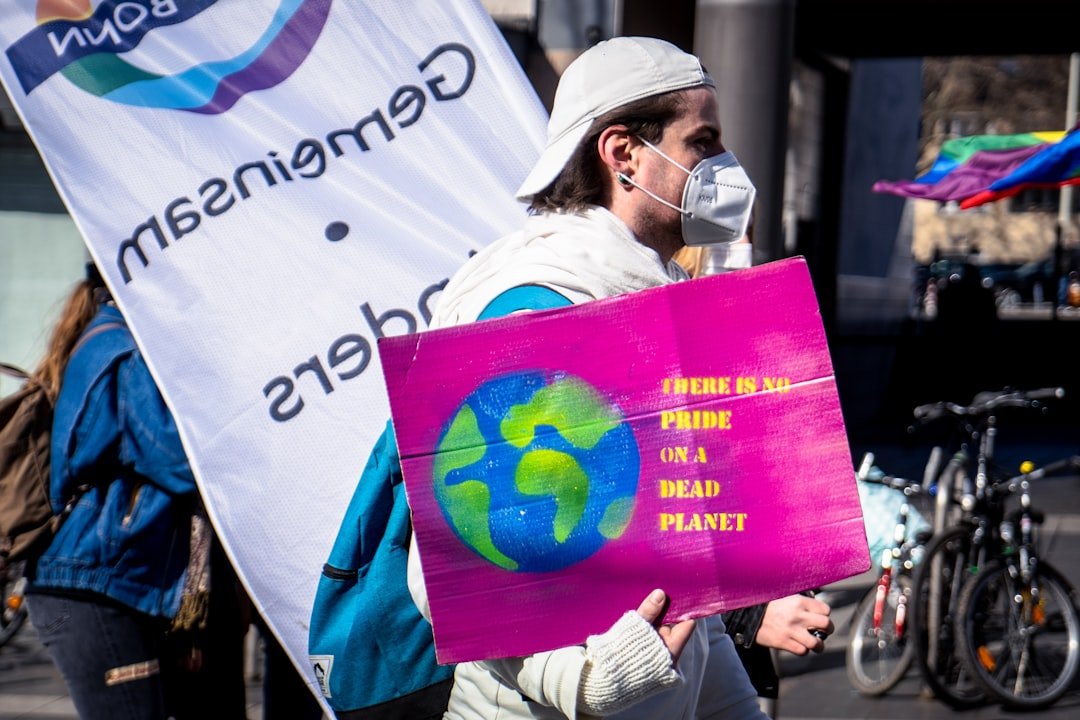The United Nations Framework Convention on Climate Change (UNFCCC) is a crucial international agreement designed to address the urgent problem of climate change. The United Nations Framework Convention on Climate Change (UNFCCC) was created in 1992 during the Earth Summit in Rio de Janeiro, Brazil, and provides a major framework for international efforts to address climate change and its negative impacts. As a global issue that cuts across national boundaries, the Convention acknowledges that all nations must work together to address climate change, especially those that bear the largest historical burden of greenhouse gas emissions. Fostering international collaboration to reduce climate change and prepare for its effects is the foundation of the UNFCCC’s operations. It offers a forum where nations can discuss and put policies into place aimed at stabilizing atmospheric concentrations of greenhouse gases.
Key Takeaways
- The UNFCCC, or United Nations Framework Convention on Climate Change, is an international treaty aimed at addressing climate change and its impacts.
- The UNFCCC was adopted in 1992 and has since evolved to become the key international framework for addressing climate change.
- The key principles of the UNFCCC include the principle of common but differentiated responsibilities, and the ultimate goal of stabilizing greenhouse gas concentrations in the atmosphere.
- The UNFCCC plays a crucial role in international climate negotiations, providing a platform for countries to come together and discuss climate action.
- While the UNFCCC has seen successes such as the Kyoto Protocol, it also faces challenges such as ensuring meaningful and ambitious commitments from all countries.
The UNFCCC works to build a sustainable future for future generations by encouraging openness, accountability, and shared responsibility. The significance of the UNFCCC in influencing global climate policy cannot be emphasized as the world struggles with progressively more severe climate-related events. Important turning points in the UNFCCC’s history demonstrate the increasing awareness of climate change as a pressing worldwide concern.
Later that year, at the Earth Summit in Rio de Janeiro, the Convention was made available for signatures after being adopted on May 9, 1992. 50 nations ratified it, and on March 21, 1994, it came into effect. The UNFCCC’s primary goal was to create a framework for global collaboration in the fight against climate change, with a particular focus on lowering greenhouse gas emissions and advancing sustainable development. In reaction to the shifting landscape of global politics & climate science, the UNFCCC has changed over time. Parties acknowledged the need for more significant pledges to cut emissions at the first Conference of the Parties (COP), which was held in Berlin in 1995.
As a result, the Kyoto Protocol was adopted in 1997, setting legally binding goals for developed nations to cut their greenhouse gas emissions. Notwithstanding difficulties with participation and compliance from important countries, the Protocol represented a major advancement in global climate negotiations. Several fundamental ideas serve as the foundation for the UNFCCC’s goals and operations.
| Metrics | Data |
|---|---|
| Year Adopted | 1992 |
| Parties to the Convention | 197 |
| Goal | Stabilize greenhouse gas concentrations |
| Key Principles | Common but differentiated responsibilities, equity, and transparency |
| Key Agreements | Kyoto Protocol, Paris Agreement |
The idea that “common but differentiated responsibilities” is one of the most basic principles. This principle recognizes that although all nations have an obligation to combat climate change, their responsibilities are not equal because of their disparate historical contributions to greenhouse gas emissions and capacities for response. It is anticipated that developed countries will take the lead in cutting emissions and giving developing nations financial and technological assistance.
The UNFCCC’s main objective is to keep atmospheric concentrations of greenhouse gases stable enough to avoid harmful human interference with the climate system. Specific goals, such as advancing sustainable development, strengthening adaptive capacity in areas that are at risk, and encouraging global collaboration in research and technology transfer, are added to this overarching goal. By establishing these objectives, the UNFCCC hopes to develop an all-encompassing strategy for combating climate change that strikes a balance between social justice, economic expansion, and environmental preservation. Through its yearly Conferences of the Parties (COP), the UNFCCC effectively facilitates global climate negotiations.
Representatives from almost every nation in the world come together for these meetings to talk about advancements, exchange stories, and work out new agreements. The COP gives countries a forum for discussion & cooperation, enabling them to voice their concerns and goals for climate action. Apart from hosting talks, the UNFCCC also offers nations technical assistance and direction as they create their own national climate action plans. This includes help with reporting progress, calculating emissions, and putting adaptation plans into action. The secretariat of the Convention is essential to the coordination of these initiatives, guaranteeing that nations have access to the data and resources required to carry out their obligations.
By using these procedures, the UNFCCC encourages a sense of accountability and shared responsibility among countries, highlighting the significance of teamwork in combating climate change. Since its founding, the UNFCCC has accomplished a number of noteworthy accomplishments, mainly in promoting international cooperation and increasing awareness of climate change. Building a comprehensive framework for climate action, which has resulted in numerous agreements & initiatives aimed at lowering emissions and advancing sustainable development, is one of its most noteworthy achievements. The COP meetings each year have developed into important platforms for nations to demonstrate their commitments & advancements while encouraging cooperation on creative solutions.
But even with these achievements, the UNFCCC still has a lot of problems that make it less effective. A significant obstacle is the difference in developed & developing countries’ ability to deal with climate change. Greenhouse gas emissions have historically been higher in developed countries, but many developing countries lack the financial and technological means to put effective climate policies into place. This disparity frequently causes friction during negotiations as developing nations demand more assistance from their more affluent counterparts. Also, a major obstacle to making significant progress under the UNFCCC framework is still political will.
Global priorities are frequently subordinated to national interests, which leaves some nations with inadequate commitments. It has become more difficult to reach an agreement on climate action as a result of important players pulling out of international agreements. Because of this, even though the UNFCCC has established a solid framework for combating climate change, problems still need to be resolved to guarantee its continued applicability and efficacy. A historic accomplishment within the framework of the UNFCC is the 2015 COP21 Paris Agreement, which sets a legally binding goal of keeping global warming well below 2 degrees Celsius above pre-industrial levels while working toward a 1 to 5 degree Celsius increase.
Building on the UNFCCC’s tenets, the Paris Agreement offers a more flexible approach by letting nations determine their own nationally determined contributions (NDCs) in accordance with their particular situation. There is a relationship of continuity and evolution between the UNFCCC and the Paris Agreement. The Paris Agreement represents a move toward a more inclusive and bottom-up approach to climate action, even though it is administered by the UNFCCC. Every five years, nations are urged to revise their NDCs, creating a cycle of ambition that eventually seeks to increase international efforts. All countries, regardless of their level of development, can participate more fully thanks to this mechanism, which also improves accountability.
In addition, the Paris Agreement places a strong emphasis on accountability and transparency by requiring nations to report on how they are doing in reaching their NDCs. This dedication to openness is consistent with the UNFCCC’s overarching objectives of promoting international collaboration and trust. Because of this, the Paris Agreement marks a new era in global climate governance as well as the conclusion of decades of UNFCCC agreements. In the future, a number of variables influencing global climate action will impact the UNFCCC. As scientific data continues to demonstrate the profound effects of climate change on ecosystems, economies, and human health, one important factor is the growing urgency surrounding this issue.
Through international cooperation made possible by the UNFCCC, governments are under increasing pressure to take decisive action as extreme weather events increase in frequency & severity. Innovation and technological developments also offer fresh chances to successfully combat climate change. Through cooperative efforts under the UNFCCC framework, the shift to green technologies, sustainable agriculture methods, and renewable energy sources can be accelerated. The UNFCCC can assist in igniting revolutionary changes that reduce emissions and advance sustainable development by establishing collaborations between governments, corporations, and civil society organizations. Nonetheless, there are still issues that could prevent advancement within the UNFCCC framework. Nations’ attempts to reach a consensus may be hampered by political polarization surrounding climate issues.
For developing nations to receive sufficient support for their climate initiatives, financing mechanisms also need to be strengthened. Therefore, continuing communication and cooperation will be crucial to overcoming these obstacles and optimizing chances for significant climate action. Ultimately, the United Nations Framework Convention on Climate Change (UNFCCC) is essential to tackling one of the world’s most urgent issues: climate change. A comprehensive framework that encourages collective action while acknowledging the diversity of national circumstances has been established through its history of international negotiation & cooperation. In addressing this global crisis, the Convention’s guiding principles emphasize the significance of equity & shared responsibility.
As evidenced by historic accords like the Paris Agreement, the UNFCCC keeps changing to meet new opportunities and challenges in climate governance. Its capacity to promote international communication creates a climate in which creative solutions can thrive while guaranteeing accountability through open reporting procedures. Finally, the UNFCCC continues to be a crucial forum for coordinating efforts toward a sustainable future for all as nations negotiate an ever-more-complex terrain of environmental threats.



